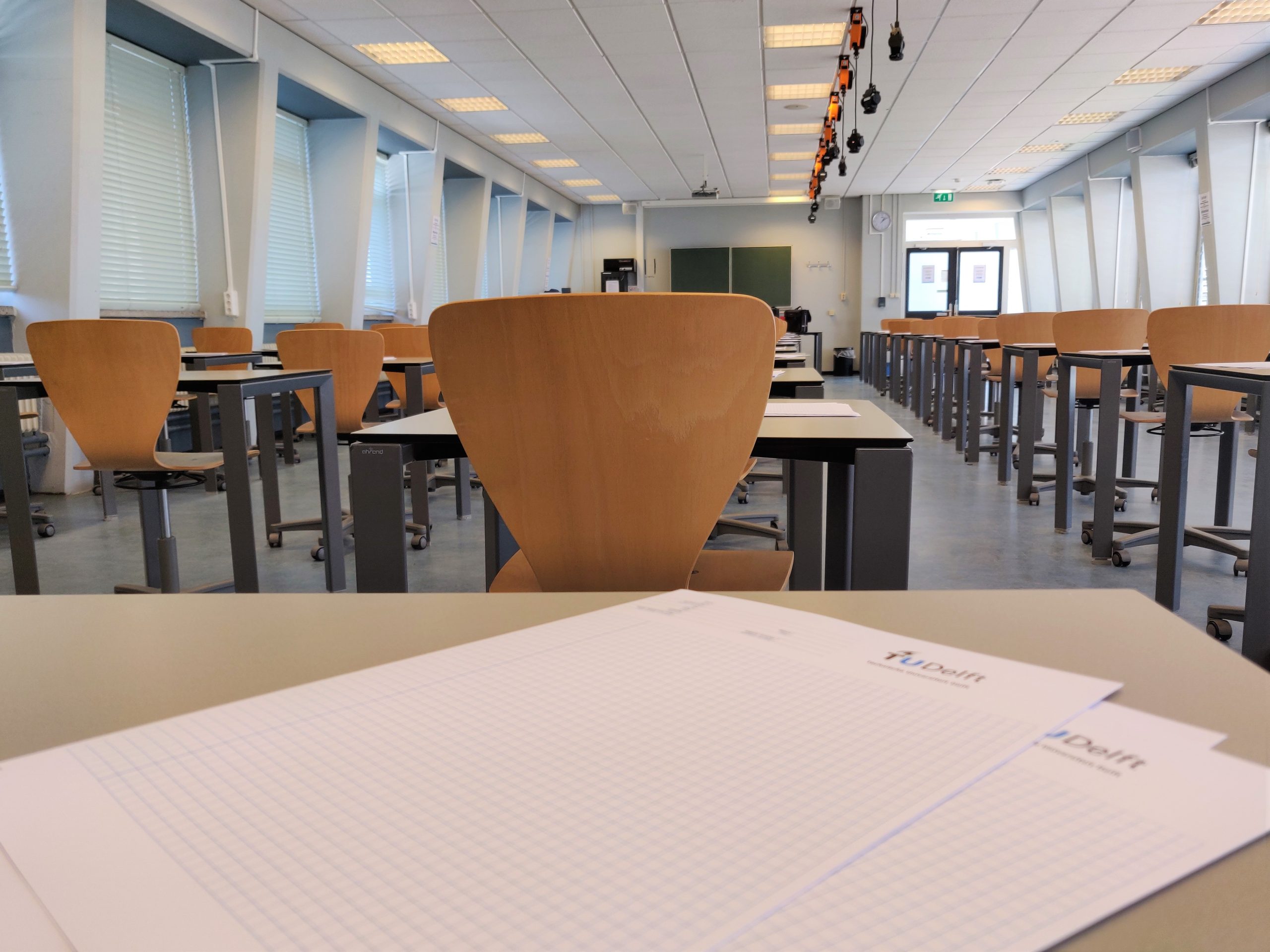About 75 percent of the exams will continue this period. How does that work and what will happen to the other 150 exams?
(Photo: Marjolein van der Veldt)
It was an immense job for teachers and support staff: turn paper exams into online exams in just a few weeks, switch to remote teaching, stay in touch with colleagues, keep students motivated and informed, keep your family running, stay healthy, etcetera, etcetera. Nevertheless, in 75 percent of the cases, teachers and support staff have succeeded in converting the exams.
According to Willem van Valkenburg, chairman of the Taskforce Assessment, teachers and support staff have ‘worked very hard’ to allow as many exams as possible to continue this current period, so that students will not be delayed in their studies. “I hope students appreciate that. Everyone does their best, tries to be aware of mistakes and to deal with them as well as possible. But things do go wrong, of course. I hope students understand that.”
Student pledge
Of the 75 percent of the exams that are currently being held – that is about 450 – the majority of bachelor’s exams take place in the form of so-called take home exams or quizzes in the online study environment Brightspace. To combat fraud, students have been told that instructors can use video calls to ask them to explain the answers given. The master’s programme makes extensive use of oral tests.
‘We are always looking for a balance between trust and control’
For all forms of remote testing, students must first take a ‘honor pledge’, in which they promise to work honestly and without assistance.
“We are always looking for a balance between trust and control,” Van Valkenburg explains. “Both parties have to get used to that. We expect students to behave with integrity, but the accreditation of study programmes also requires certain fraud measures. That is not easy, also because we have to comply with privacy rules.”
Online proctoring
This is all the more important in the case of online proctoring, which is the subject of discussion for privacy reasons. Earlier, Van Valkenburg explained that this method would now be used on a limited scale, and indeed: only 25 exams will be taken in this way during this period. In the case of TU Delft, it works as follows: students are filmed with their own webcam during the exam. Their PC is locked so that they cannot access other programs. Students have to identify themselves beforehand with their campus cards. Recorded images and sounds go to the American company RP Now, where two people check them. Suspicious recordings go to the teacher. If there is reasonable doubt of fraud, they go to the board of examiners.
The largest exam now taken with this technique had 138 participants. According to Van Valkenburg, all these exams have so far gone without technical problems. He has not yet heard from Delft students who object due to privacy. “It only went wrong for a moment with a student who wanted to take his exam from China and who ran into the Chinese firewall.”
Mathematics exams
The plan is to use online proctoring more during the next exam period, which will also have to take place remotely. For the major mathematics courses perhaps. Of the 25 percent of exams that are not held during this period, relatively many are from mathematics, because they are so massive and widespread. And next exam period there will be another ten thousand registrations for mathematics exams alone.
But when should the 150 exams that cannot be held now take place? Schedules are normally filled up already. Some faculties may be able to catch up on postponed exams during the so-called mid-term week of the fourth quarter, at the end of May. In other faculties, which have already scheduled examinations during the mid-term week, the postponed examinations must be moved on to the examination period of the fourth quarter, which has already been extended by one week for this purpose. This will be ‘a very complex puzzle’, according to Van Valkenburg. “Every time we have to look at the studyability.”
- Are you a teacher or a student? What are your experiences with online exams? Let us know by mail or our social media.
Do you have a question or comment about this article?
s.m.bonger@tudelft.nl


Comments are closed.